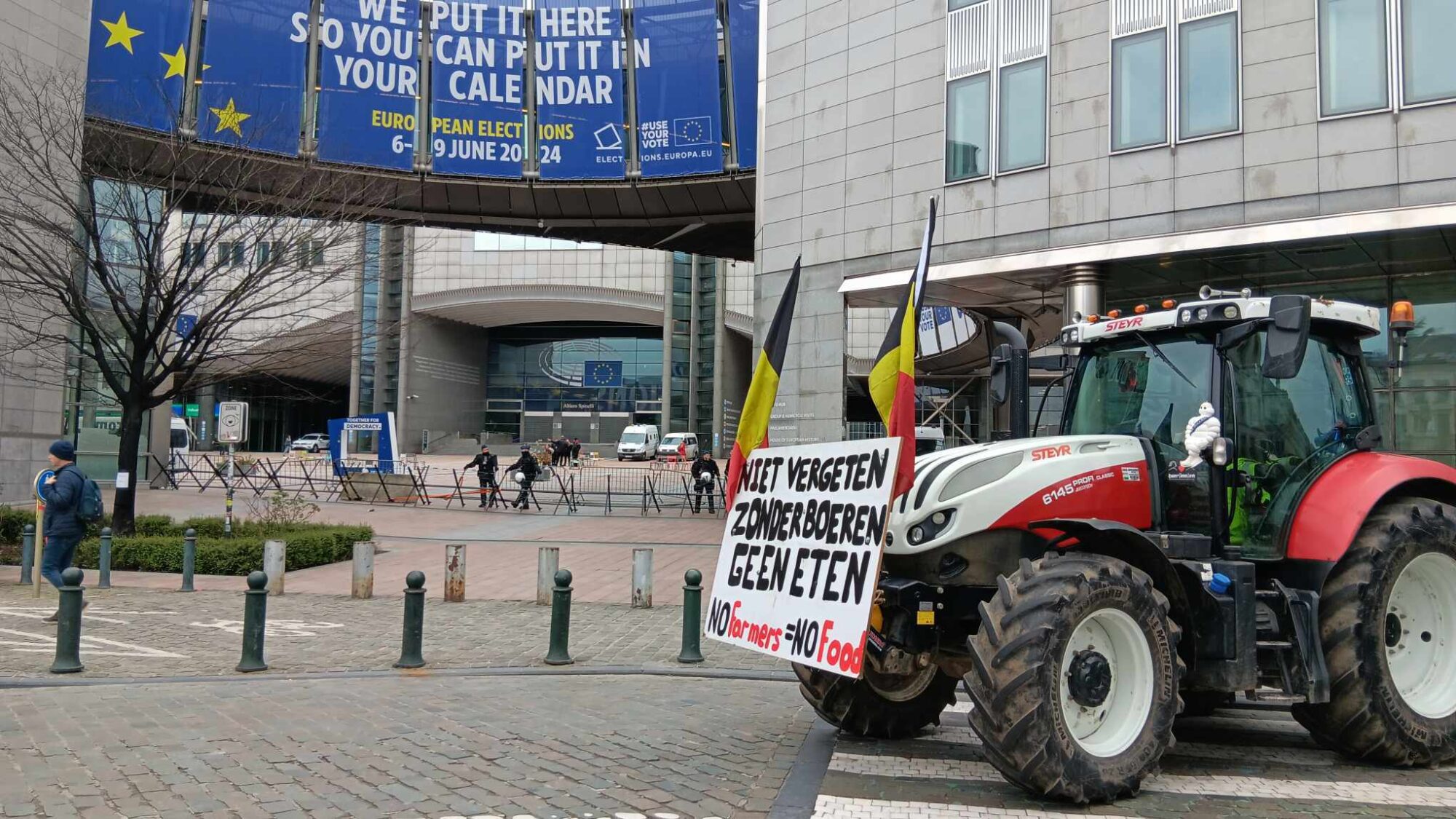
Photo: Thomas O’Reilly
In what has become a familiar sight for Brussels commuters, Belgian police faced off with protesting farmers in the heart of the EU capital on Tuesday morning as Europe’s wave of agrarian demonstrations again swept into the city ahead of June’s European elections.
A combination of Flemish, Wallonian, and French farmers lined the streets of Brussels’ European district from 10 a.m. in a protest against the EU’s prohibitive green policies as well as cheap imports and looming trade agreements threatening the bloc’s farmers.
The day’s events were spearheaded by the Federation of Young Farmers (FJA) and the Walloon Federation of Agriculture (FWA) with the Belgian press placing numbers at approximately 300 tractors.
Farmers were mobilising against a meeting of EU Agricultural Ministers occurring nearby at the European Council buildings. This is the third major farmer demonstration this year so far, and farming lobbies said they would continue to pile pressure on Eurocrats heading into June in a pan-European display of strength.
While the protest transpired largely without violence, a standoff erupted between farmers and riot police near the European Commission’s headquarters in Berlaymont, with protesters throwing flash bombs and eggs at police.
Small running skirmishes developing in Brussels as CS gas deployed pic.twitter.com/d9CMaEK1tz
— Thomas O'Reilly (@TOR_EuroCon) March 26, 2024
Belgian police responded by installing a protective ring of barriers and contingents of riot squads around most EU institutions, including the European Parliament. Water cannons were deployed to douse burning barricades. Farmers ceremonially poured slurry on the city’s famous ‘The Future Is Europe’ mural adjacent to the European Commission as tractors dumped hay and mud on the streets around the EU quarter.
The day’s events occurred in tandem with additional farmer protests across Europe. A confluence of issues—ranging from the threat posed by Ukrainian food imports to the Common Agricultural Policy (CAP) and the overbearing regulatory burden of the Green Deal—is helping to drive Europe’s farmers into the streets. The agrarian unrest has led many traditional centre-right parties to shift their rhetoric in light of the upcoming elections.
